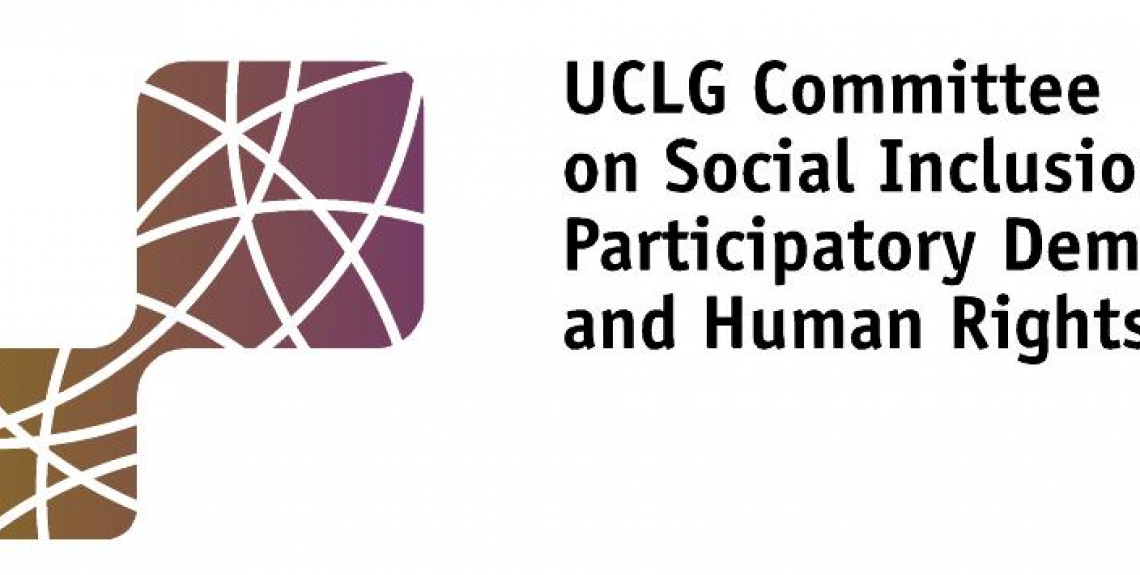The Committee on Social Inclusion, Participatory and Human Rights of UCLG organized this parallel session, which will take place on 3rd October 2013 from 16h to 17:30h at ISESCO (Room A.Saoud), as part of the World Summit of Local and Regional Leaders which will take place in Rabat (Morocco), 1-4 October 2013.
Presentation and moderator: Ms. Maite Fandos, Deputy Mayor of Barcelona, Spain and President of the Committee on Social Inclusion, Participatory Democracy and Human Rights of UCLG.
Speakers:
- Mr. Patrick Jarry, Mayor of Nanterre, France
- Ms. Halima Tijani, Mayor of Raoued, Tunisia
- Mr. Thabo Manyoni, Mayor of Mangaung and President of the South African Local Government Association (SALGA), South Africa
- Ms. Nadia Campeão, Vice Mayor of São Paulo, Brazil
- Mr. Frédéric Vallier, Secretary General of the Council of European Municipalities and Regions (CEMR)
- Mr. Giovanni Allegretti, researcher at the Center for Social Studies (CES), University of Coimbra (Portugal)
Rapporteur: Mr. Nelson Saule Jr., General Coordinator of Instituto Pólis, Brazil
Click here to access Parallel Session Programme
Summary of topic and context
The 1990s was a milestone in terms of recognition of the role of local governments as pillars of states' democratic quality. Some years later, it would gain ground the acknowledgement of cities as key human rights actors in their role of providers of public services and agents responsible for education, health and housing policies.
This international debate would be translated into the claim for «the right to the city», according to which the city is a collective space which belongs to all its residents and which must offer the necessary conditions for a decent life from a social, political, cultural, economic and environmental point of view.
As a result of this process, various local human rights charters were adopted from 2000 onwards: the European Charter for the Safeguarding of Human Rights in the City (Saint-Denis, 2000), signed by more than 350 European cities; the World Charter on the Right to the City, drafted by social movements gathered in the World Social Forum in Porto Alegre (2001); the Charter of Rights and Responsibilities of Montreal (2006); the Mexico City Charter for the Right to the City (2010); the Gwangju Human Rights Charter (South Korea, 2012). The «right to a solidarity-based metropolis» would emerge afterwards as a result of the work undertaken by the Forum of Peripheral Local Authorities (FALP).
In order to contribute to the international promotion of the right to the city, UCLG adopted in 2011 the Global Charter-Agenda for Human Rights in the City at the initiative of its Committee on Social Inclusion, Participatory Democracy and Human Rights.
The panel “The right to the city: fighting against urban inequalities” will address this topic. Particularly, it will address the issue of how can local government design policies to implement the right to the city.
Considering the parallel session will be framed under the Congress thematic round table on “Promoting Diversity”, the debate will deal with the different dimensions of the right to the city which are linked to the broad concept of diversity: political, social, spatial, cultural, economic and environmental diversity.
These reflections will finally fuel the overall discussions taking place during the Congress because the right to the city and the fight against urban inequalities is a key element to “imagine society and build democracy”.
Key questions that will be raised during the parallel session
- Tools to implement, monitor and evaluate the right to the city at local level (social policies and action plans, provision of equitable public services, municipal human rights charters, indicators and human rights diagnosis).
- The challenge of realizing the right to the city in a metropolitan context.
- The role of the right to the city in the post-2015 debate and Habitat III.
Expected outcomes
- Exchange of experiences, best practices and innovative policies on the right to the city.
- Recommendations for local government about how to translate the right to the city into specific policies, monitoring mechanisms and evaluation tools.
- Concrete proposals aiming at feeding into the post-2015 goals and indicators and the debate on Habitat III.


